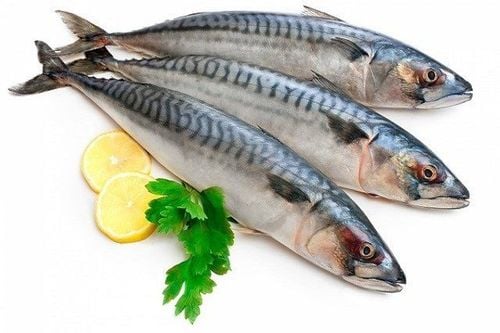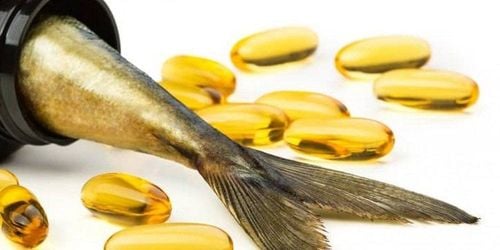Mackerel is a nutrient-rich food high in protein and omega-3 fatty acids. Its delicious yet mild flavor has made mackerel a favorite among many. You can incorporate this fish into your diet to gain numerous health benefits.
1. Nutritional composition of mackerel
Mackerel is often compared to tuna due to their many similarities: both are large, oily fish with firm flesh and are commonly canned foods. Additionally, both belong to the Scombridae family. However, mackerel are smaller and have a shorter lifespan than tuna.
Mackerel is known for its rich, robust flavor. Currently, there are 21 species of mackerel, although not all are commonly consumed. Atlantic mackerel is one of the most popular varieties. According to the USDA, the nutritional composition of 100 grams of mackerel includes:
- Calories: 189
- Fat: 11.9g
- Sodium: 89mg
- Carbohydrates: 0g
- Fiber: 0g
- Sugar: 0g
- Protein: 19g
Upon examining its composition, it is evident that mackerel contains no carbohydrates, fiber or sugar. However, these elements may be added to mackerel if it is prepared through frying or breading.
Regarding fat content, mackerel provides nearly 12 grams of fat per 100-gram serving. Approximately 3 grams are saturated fats, 4.5 grams are monounsaturated fats and 2.9 grams are polyunsaturated fats. Additionally, mackerel is rich in omega-3 fatty acids. According to USDA data, a serving provides 0.77 grams of EPA (eicosapentaenoic acid) and 1.25 grams of DHA (docosahexaenoic acid). These two essential fatty acids are primarily absorbed through dietary intake, as the body produces very little on its own.
Mackerel also supplies a small amount of a lesser-known omega-3 fatty acid called DPA (docosapentaenoic acid), with about 0.18 grams per 100-gram serving. The fat content in mackerel can vary depending on the region where it is caught and the time of year.

- Protein content: Mackerel is a complete protein source, with a 100-gram serving providing 19 grams of macronutrient, including all nine essential amino acids.
- Vitamins and minerals: The vitamin B12 content in mackerel is excellent for overall health, particularly for cardiovascular (heart and blood vessels) well-being. Additionally, mackerel supplies niacin, iron, vitamin B6, riboflavin, magnesium, phosphorus, folate and selenium.
Beyond these nutrients, mackerel can also be a good source of vitamin D. Besides milk, oily fish is often considered an excellent source of this nutrient. According to USDA data, a serving of mackerel contains 13.8 mcg, which can be converted to approximately 552 International Units (IU). The National Institutes of Health state that we receive 600 IU of vitamin D when exposed to sunlight.
2. Health benefits of mackerel
2.1. Improving cardiovascular health
Studies have shown that polyunsaturated fats, including omega-3 fatty acids DHA and EPA, are beneficial for the heart. These nutrients can help reduce the incidence and mortality rates associated with cardiovascular diseases. Numerous studies have also indicated that fish oil supplementation can help lower triglycerides without increasing other types of cholesterol.
To prevent heart disease, doctors may recommend that patients with coronary artery disease supplement with fish oil to ensure an adequate intake of essential omega-3s. Additionally, the American Heart Association advises consuming fish at least twice a week to reduce the risk of heart disease.
2.2. Preventing dementia (memory decline) in the elderly
Consuming seafood can help prevent cognitive decline in the elderly. Fish provides EPA and DHA, which improve cognitive impairment and dementia in individuals with mild Alzheimer’s disease.

2.3. Preventing Anemia
Like many other marine fish, mackerel contains nutrients that help prevent anemia caused by nutritional deficiencies such as iron, vitamin B12 and certain folates. A deficiency in any of these micronutrients can lead to anemia. Symptoms indicating anemia include muscle weakness, vision disturbances, fatigue and more severe complications such as infertility.
2.4. Reducing the risk of type 2 diabetes
According to experts, consuming a high amount of polyunsaturated fats reduces the risk of developing type 2 diabetes. Conversely, consuming foods high in saturated fats can lead to type 2 diabetes. Mackerel is rich in health-promoting omega-3 fatty acids, so it is recommended to eat fish twice a week to improve overall health and prevent diseases.

3. Allergies from mackerel
Like many other seafood items, mackerel can cause several allergies, the most severe being anaphylactic shock. Reportedly, there have been numerous cases of histamine poisoning, a type of foodborne illness that can be mistaken for scombroid poisoning. Mackerel naturally contains high histamine levels. If the fish spoils, excessive bacterial growth increases histamine levels and the potential for histamine poisoning. Symptoms can occur anytime from 5 minutes to 2 hours after consumption.
The symptoms of histamine poisoning are similar to typical food allergy symptoms and can include wheezing, tongue swelling, diarrhea, fainting and nausea. However, when a group of people consuming the same food exhibit these symptoms, histamine poisoning is more likely than food poisoning. Additionally, mackerel is one of the fish with high mercury content and should be consumed in limited quantities during pregnancy and breastfeeding to avoid harm to the baby. Current recommendations from the American College of Obstetricians and Gynecologists advise women to follow FDA guidelines to consume 2-3 servings of fish per week. Furthermore, to ensure safety, you should choose fresh mackerel that is free from any fishy or sour smell. Fresh mackerel is characterized by firm flesh, clear eyes and a shiny body. Fresh mackerel can be sold frozen but must maintain its freshness.
You should store fresh mackerel in the freezer immediately after purchase or if not yet used. Cook the fish within 2 days. Always wash your hands thoroughly with soap and water after handling raw seafood. Clean countertops, cutting boards, and utensils after processing raw fish to avoid cross-contamination between raw and cooked foods.
To arrange an appointment, please call HOTLINE or make your reservation directly HERE. You may also download the MyVinmec app to schedule appointments faster and manage your reservations more conveniently.
References: menshealth.com, verywellfit.com













